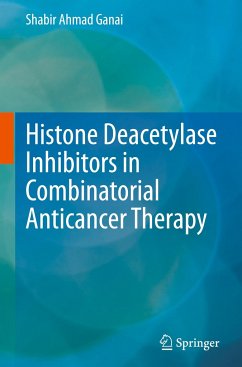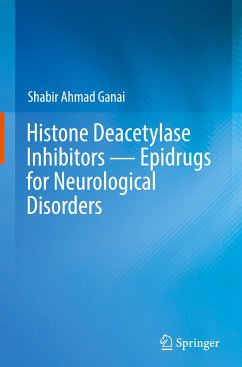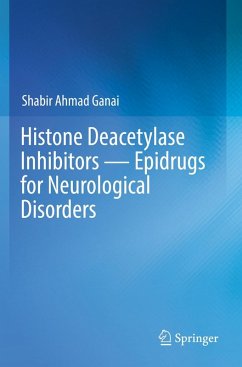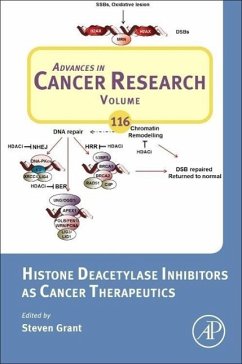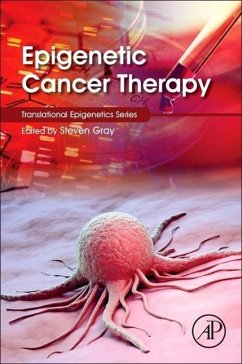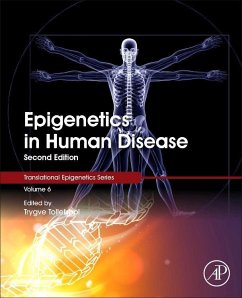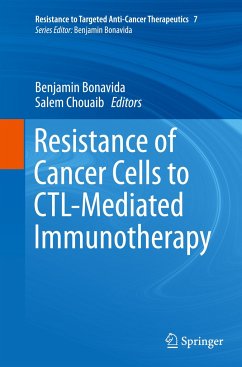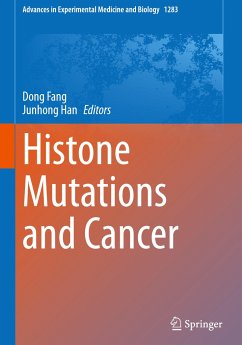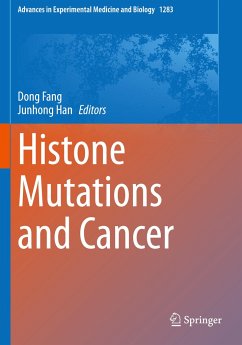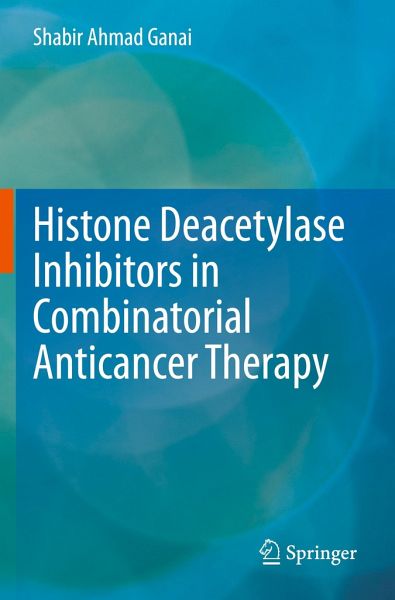
Histone Deacetylase Inhibitors in Combinatorial Anticancer Therapy
Versandkostenfrei!
Versandfertig in 6-10 Tagen
113,99 €
inkl. MwSt.
Weitere Ausgaben:

PAYBACK Punkte
57 °P sammeln!
This book reviews the latest developments in the design, synthesis, and molecular mechanism of action of Histone Deacetylase (HDAC) inhibitors in the context of potential cancer therapy. HDAC inhibitors are emerging as promising anticancer drug molecules that promote growth arrest, differentiation and apoptosis of cancer cells with tumor selective toxicity.The book begins with an overview of various epigenetic modifying enzymes that are involved in cancer transition and progression; before exploring the potential of HDACs in cancer treatment. It provides a classification of HDAC inhibitors bas...
This book reviews the latest developments in the design, synthesis, and molecular mechanism of action of Histone Deacetylase (HDAC) inhibitors in the context of potential cancer therapy. HDAC inhibitors are emerging as promising anticancer drug molecules that promote growth arrest, differentiation and apoptosis of cancer cells with tumor selective toxicity.
The book begins with an overview of various epigenetic modifying enzymes that are involved in cancer transition and progression; before exploring the potential of HDACs in cancer treatment. It provides a classification of HDAC inhibitors based on their structural attributes, and addresses HDAC-induced cytotoxicity..
Lastly, it discusses and assesses the rationale behind therapies that combine HDAC inhibitors with other anticancer agents to treat solid tumors. Given its scope, it offers a valuable resource for all researchers, clinicians, and students working in formulation, drug discovery, oncology, and personalized medicine.
The book begins with an overview of various epigenetic modifying enzymes that are involved in cancer transition and progression; before exploring the potential of HDACs in cancer treatment. It provides a classification of HDAC inhibitors based on their structural attributes, and addresses HDAC-induced cytotoxicity..
Lastly, it discusses and assesses the rationale behind therapies that combine HDAC inhibitors with other anticancer agents to treat solid tumors. Given its scope, it offers a valuable resource for all researchers, clinicians, and students working in formulation, drug discovery, oncology, and personalized medicine.





